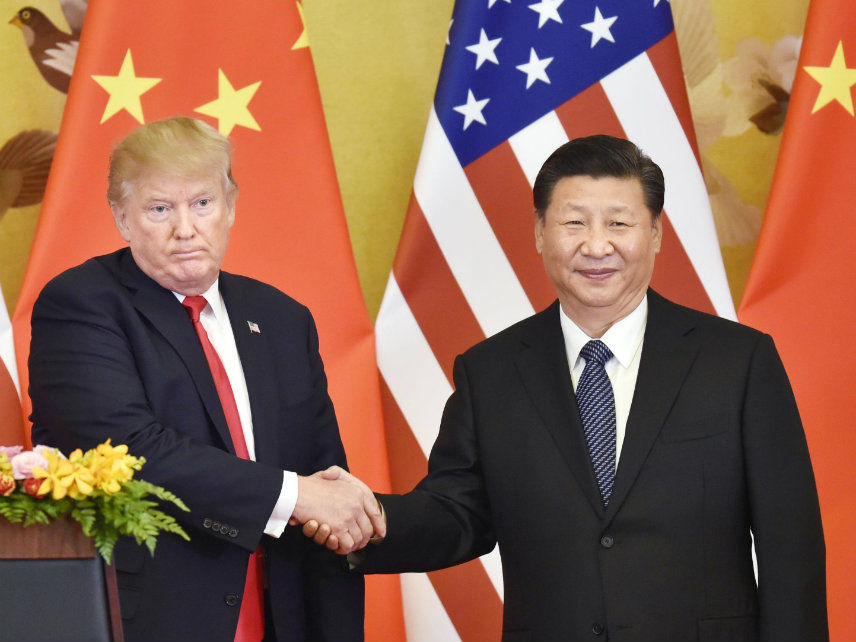Trump's Tariffs Are Endangering Market Reforms in China
- OurStudio

- Sep 20, 2018
- 3 min read

Kyodo/Newscom
President Donald Trump's decision to escalate his trade war with another round of tariffs could put economic and political pressure on private sector businesses in China—but not the kind the president is hoping to apply.
Rather than causing Chinese companies to pack up and move to the United States to avoid tariffs, the trade war with China is likely to make life more difficult for private sector firms in China, boost state-owned businesses, and slow or even reverse market-based reforms that China has been working to implement in recent years.
Chinese entrepreneurs worry that the trade war will "put them in the Communist Party's crosshairs," according to the Financial Times. The Times reports that China's top trade negotiator, Liu He, has been working to reform the country's economy in ways that give private businesses greater access to banking and reduce state-controlled firms' structural advantages. The escalating trade war will make it "politically difficult" for Liu to continue working on that agenda.
American trade policy shouldn't necessarily be dictated by what's happening in China, of course, but the growth of private sector businesses and general liberalization of the Chinese economy is beneficial for the United States and the world economy—to say nothing of how liberalization has helped lift millions of Chinese citizens out of poverty. Trump's trade war is jeopardizing not only the relationship between the world's two largest economies, it threatens to undo decades of fragile progress in getting China to turn away from communism.
What's happening in China is not all that different from what's happened in the U.S. since the enactment of tariffs on steel and aluminum. Businesses with strong political connections have been able to direct the U.S. Commerce Department's opaque, bureaucratic waiver process in a way that suffocates competitors.
What does the United States stand to gain from this shift? Trump and his advisors seem to believe that tariffs on Chinese imports will force more products currently manufactured in China to be made in America. Trump has tweeted that he feels no pressure to make a deal with China because tariffs will mean "making products at home," and he's specifically called for iPhones and a Chinese-made Ford automobile to be producted in the United States.
Those things aren't going to happen. Global supply chains mean that it's almost impossible for the iPhone to be made entirely in the United States—and it would be prohibitively expensive to do so. Ford says it will not be relocating production of the Focus Active to America, despite presidential tweets indicating otherwise. Instead, Ford will simpy cancel plans to offer the car for sale in the U.S. and then continue to make it in China.
Don't expect other Chinese firms to behave any differently. Only six percent of the members of the American Chamber of Commerce in China, a trade association representing Chinese companies that do business in the United States, say this current US-China trade dispute would make them consider relocating operations.
More than half the chamber's members have reported an increase in non-tariff trade barriers as well, says chairman William Zarit, such as increased inspections and slower customs clearance, as Beijing makes life more difficult for private firms doing business with the United States.
"Contrary to views in Washington, China can—and will—dig its heels in and we are not optimistic about the prospect for a resolution in the short term," says Zarit. "No one will emerge victorious from this counter-productive cycle."




Comments